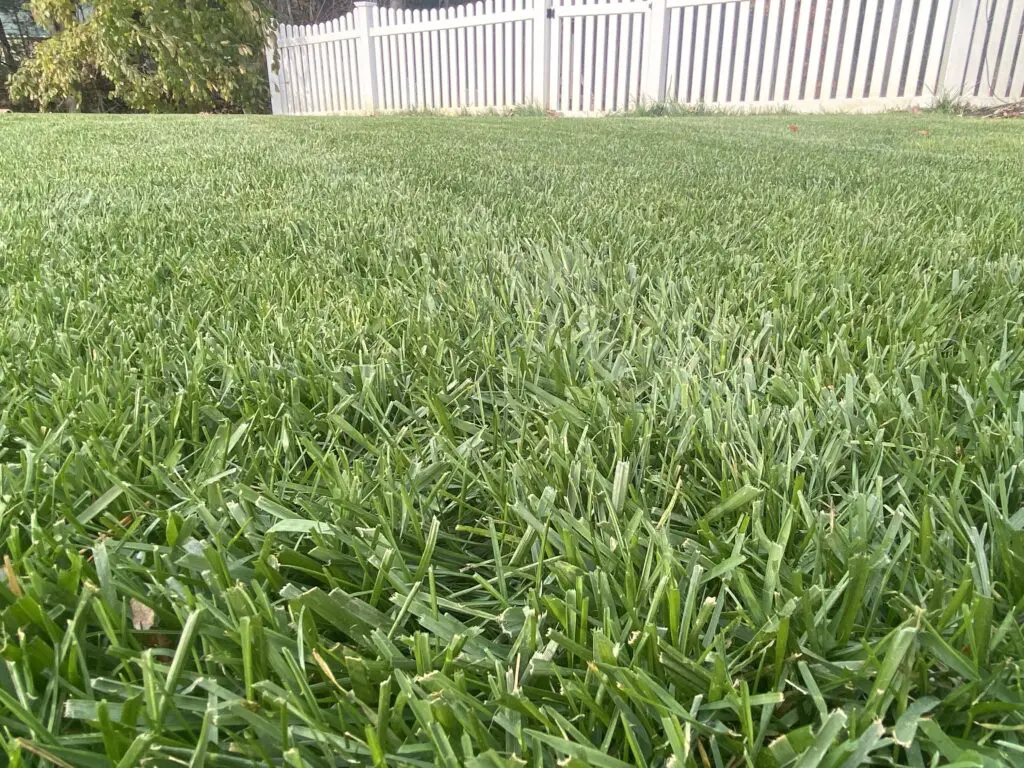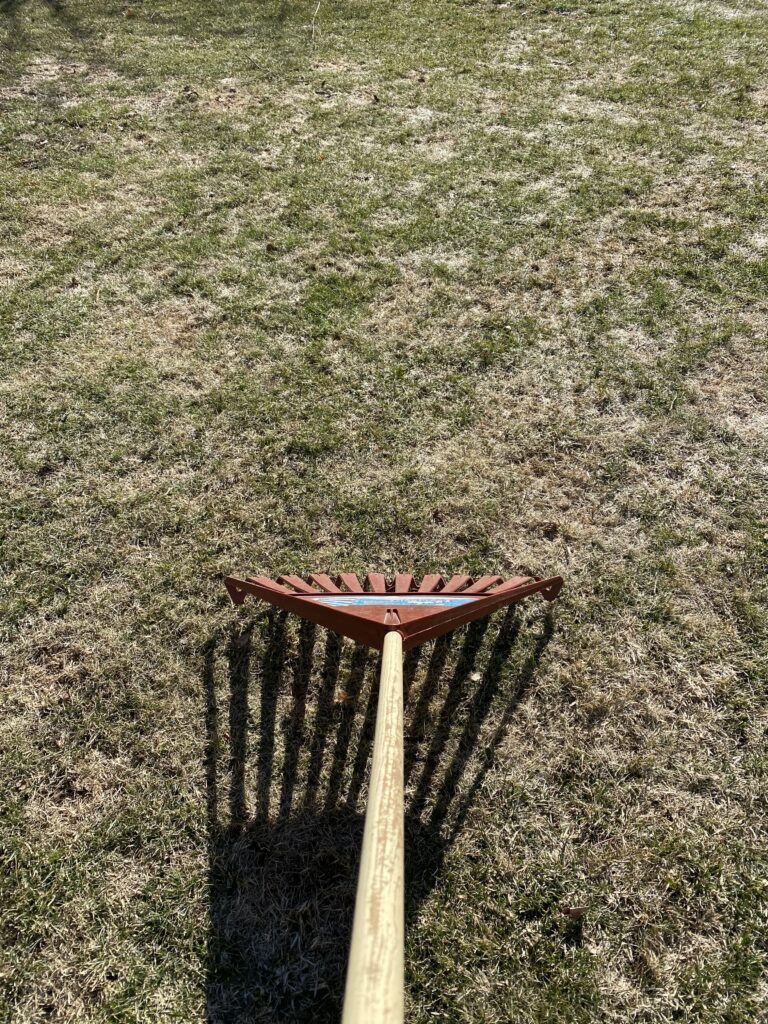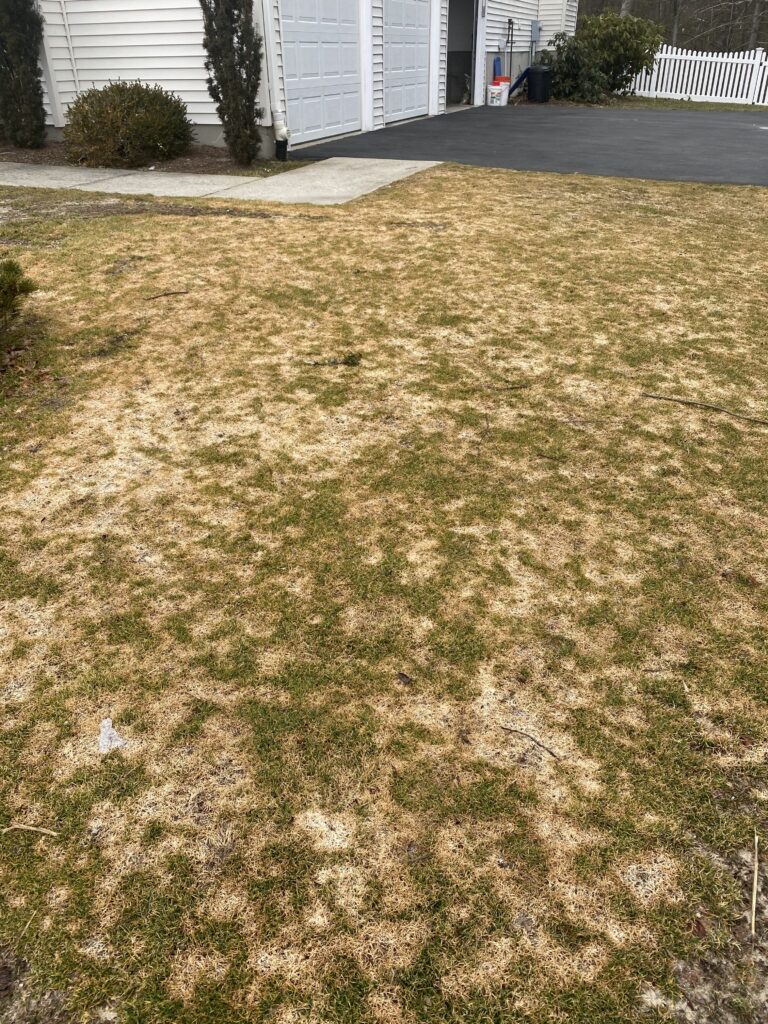Tis the season to discuss and debate many end-of-season lawn care tips. The main ones I continue to see and hear at the end of fall and near winter are:
- How short should I cut my grass for the winter?
- Should I bag the leaves of mulch them?
- Can I walk on frozen grass?
I have tested these different methods throughout my years as both a DIYer, and have seen a lot throughout my time as a professional applicator. Based on my experience, here are my thoughts and suggestions.
The Ideal Grass Height
The ideal winter grass height for cool-season grasses is between 2.5″ to 3.0″.
The main reason to lower your mower deck heading into the winter is to prevent the grass from folding over on top of itself. This will limit air circulation throughout the lawn and likely cause snow mold and other diseases in the early spring.
Be sure to mow with a sharp blade, as you usually would throughout the growing season. You want a clean cut to avoid shredding and tearing the grass tips. Taller grass in the winter tends to stay greener longer, but you’ll be better in the long run with a shorter cut.

Bag Those Fallen Leaves
Contrary to many proponents for leaving the fallen leaves on the lawn over winter, I can’t entirely agree. Do leaves contain some organic matter that might benefit your turf? Maybe.
But my problem with this is that most homeowners do not mulch properly. Even many commercial mowers (i.e., Wright standers, etc.) will need to mow and mulch a couple of times before the leaves have been ground up fine enough to be considered “mulch.” If you have the time and can pulverize the leaves – go for it! But if you only make one pass over oak leaves, it won’t be fine enough.
So, what happens to your lawn if you don’t remove the leaves? They will smother your lawn. While your grass will be dormant over the freezing winter months, it is still alive and needs sunlight and as much airflow as possible.
Turf that is long and folds over on top of itself, or leaves smothering the grass and prolonged snow cover will ultimately cause snow mold. While you can rake this out in the spring (when the grass has thawed and dried) it is unsightly and can be avoided.

Limit The Foot Traffic
I know, as a Father of three kids, it would be impossible to try to tell your children not to play in the snow. I mean, what beats sledding, snowball fights, and snow forts? But if your lawn has a centerpiece section, it’s best to stay off as much as possible when the grass is frozen.
Stepping on frozen turf can break the blades and, even worse, damage the plant’s crowns. The image below is a small piece of my lawn in the winter of 2021. It’s a popular place to shovel and throw snow from the driveway and a fun area to play. This section did come back in the spring, but it certainly took a while.

These few winter tips have served me well over the years. If you have any experience or thoughts to share, please comment below!

